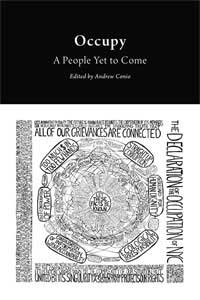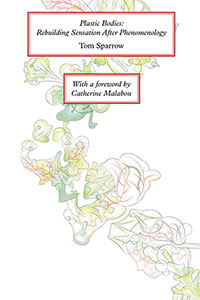Two new books
Sep 17, 2015

The First Sail: J. Hillis Miller
The film-book The First Sail: J. Hillis Miller is a film book based on the documentary film about J. Hillis Miller by Dragan Kujundžić in 2010.
Announcing Plankton Dreams
Jun 30, 2015
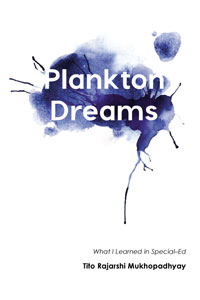
Plankton Dreams: What I Learned in Special-Ed
In Plankton Dreams, Mukhopadhyay crafts a proud, satiric style: the special ed student as literary troublemaker. ‘Mother had always taught me to learn from circumstance,’ he writes. ‘Here, the circumstance was humiliation, a particularly instructive teacher.’ ‘But I’m not complaining,’ he continues. ‘Humiliation, after all, made me a philosopher.
The Anthropocene is here!
Jun 25, 2015
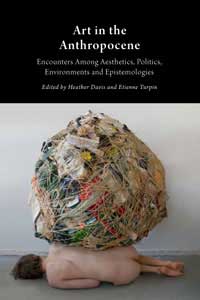
Art in the Anthropocene: Encounters Among Aesthetics, Politics, Environments and Epistemologies
Taking as its premise that the proposed geologic epoch of the Anthropocene is necessarily an aesthetic event, this book explores the relationship between contemporary art and knowledge production in an era of ecological crisis, with contributions from artists, curators, theorists and activists
Announcing Digital Light
Jun 03, 2015
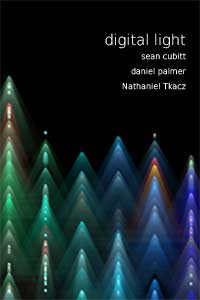
Digital Light
Light symbolises the highest good, it enables all visual art, and today it lies at the heart of billion-dollar industries. The control of light forms the foundation of contemporary vision. Digital Light brings together artists, curators, technologists and media archaeologists to study the historical evolution of digital light-based technologies.
New Book
Mar 23, 2015
Happy Critical Holidays!
Dec 13, 2014
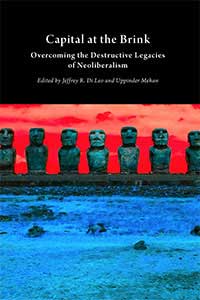
Capital at the Brink
Capital at the Brink reveals the pervasiveness, destructiveness, and dominance of neoliberalism within American society and culture. The contributors to this collection also offer points of resistance to an ideology wherein, to borrow Henry Giroux’s comment, ‘everything either is for sale or is plundered for profit.’
New Book Release
Nov 09, 2014
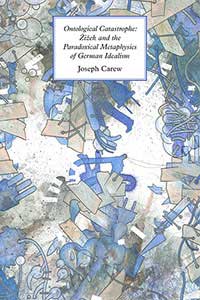
Ontological Catastrophe
In Ontological Catastrophe, Joseph Carew takes up the central question guiding Slavoj Žižek’s philosophy: How could something like phenomenal reality emerge out of the meaninglessness of the Real? Carefully reconstructing and expanding upon his controversial reactualization of German Idealism, Carew argues that Žižek offers us an original, but perhaps terrifying, response: experience is possible only if we presuppose a prior moment of breakdown as the ontogenetic basis of subjectivity.
Celebrating Open Access Week with a new book series
Oct 20, 2014
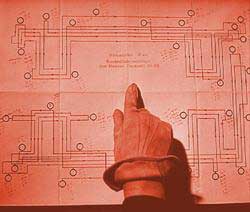
Announcing Technographies
In celebration of Open Access Week, we are thrilled to announce a new open access book series, Technographies. Edited by Steven Connor, David Trotter and James Purdon, Technographies aims to encourage investigation of a wide variety of writing ‘about’ technology. Contributions are sought that will develop new, ambitious and scholarly approaches to technological mediation using the tools of literary criticism, theoretical elaboration, rhetoric, poetics, gender studies and queer theory, material culture, media archaeology, the history of science, and similar disciplines.
Announcing Minimal Ethics
Sep 21, 2014

Minimal Ethics for the Anthropocene
The task of minimal ethics is to consider how humans can assume responsibility for various occurrences in the universe, across different scales, and how they can respond to the tangled mesh of connections and relations unfolding in it. Its goal is not so much to tell us how to live but rather to allow us to rethink “life” and what we can do with it, in whatever time we have left. The book embraces a speculative mode of thinking that is more akin to the artist’s method; it also includes a photographic project by the author.
25th Living Book released
Jul 04, 2014

Animal Experience
We are pleased to announce the publication of Animal Experience, the 25th book in our open access Living Books About Life series.
Edited by Leon Niemoczynski and Stephanie Theodorou, Animal Experience explores the nature and meaning of the emotional lives of nonhuman animals, focusing on how those lives are communicated to other living creatures (such as human beings) via affective states. Through a comprehensive selection of essays and videos from both science and philosophy, the editors re-examine how human beings interact with, and relate to, other living creatures that are capable of experiencing emotional lives.

